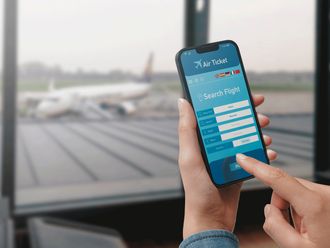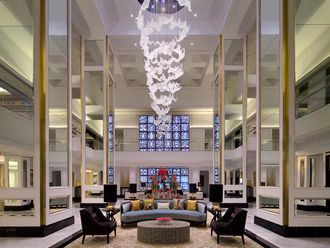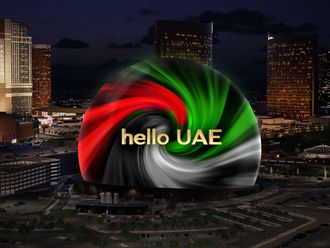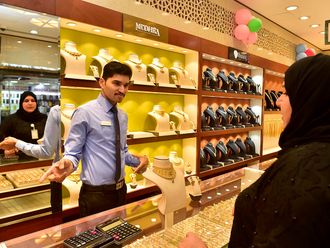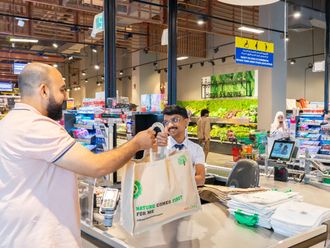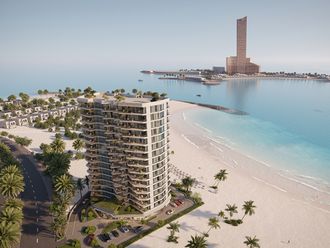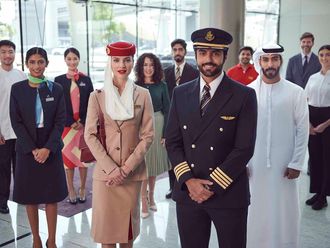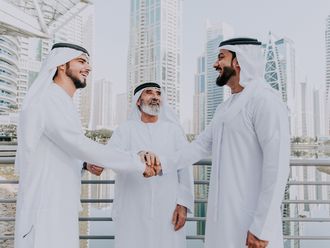Dubai: Whether it's ‘past perfect' or ‘imperfect', for most businesses ‘future' remains tense.
For Hilton Worldwide's business in the Middle East, it has been a continuous growth amid challenges. The question remains — is the ‘future tense', or ‘future perfect'?
"It's past continuous, future growth," said Jean-Paul Herzog, President of Hilton Worldwide for the Middle East and Africa, with a smile.
"We had continuous growth during the last 50 years in the Middle East and we will grow for the next 500 years!"
Jean-Paul Herzog is always a man with a smile. Well, he is in the hospitality business where service comes with a smile.
As President of Hilton Worldwide for the Middle East and Africa, Herzog manages an inventory of 14,328 rooms in 44 hotels in 14 countries with 15,925 employees serving hundreds of thousands of guests and families every year. Keeping all of them happy is too much to ask, if not impossible.
On top of that, he is at the centre of the development of 21 more properties that are being built by investors for Hilton Worldwide in his region.
For a man with such a huge responsibility, a smile is supposed to be a rare commodity, especially 18 months after the global fin-ancial crisis that badly affected the world economy and the travel and tourism industry.
However, he is never without a smile — it comes naturally. This is probably due to his long association with the hospitality industry.
"The last 18 months were difficult. But we were lucky. The Middle East and Africa region has suffered less compared to other regions," he says.
"We suffered less as the decrease here was lower. Revenue per available room (RevPAR), a factor that measures the hotel industry's performance combining occupancy with room rate and revenue," suffered very little, he says.
"In some hotels it was slightly down, in some markets it was stable. However, things are looking up this year. Volume is rising and rates will recover slowly.
"There are always challenges to be faced. Econ-omic challenges come in cycling order. However, tourism industry sustained a 3.5 per cent growth year on year, taking the number of annual tourist flow to one billion."
Massive investment
According to the United Nations World Tourism Organisation (UNWTO) the global tourism watchdog, annual tourist flow will reach 1.6 billion by 2020. This requires a massive investment in hotels.
"This means 600 million more tourists will be required to sleep somewhere. You need to build more hotels to accommodate them," he said.
Hilton's 21-strong development pipeline in the region will help meet growing demand, he says. Hilton is introducing DoubleTree brand in Ras Al Khaimah later this year, while Conrad Dubai will open late next year.
"Conditions in the region are right for growth. There is a vibrant tourism industry and I think it can sustain growth," Herzog says.
His company has launched an advance purchase campaign to help increase future bookings and occupancy. "It's doing well," he said.
A demand-supply mismatch, however, could upset the balance, going forward.
That's why Hilton has embarked on an aggressive roll-out of hotels that will help it to meet global demand as well as help it reposition in the industry. Hilton's global pipeline includes more than 900 hotels with more than 129,000 rooms scheduled to open.
Hilton, which merged its global operation with the US business under Hilton Worldwide corporate identity, has 10 brands in its portfolio across all lodging segments.
In 2009, despite major challenges for the hospitality industry overall, Hilton Worldwide added 302 new hotels and more than 45,000 rooms to a total count that is now more than 3,500 hotels and 585,000 rooms. In 2008, Hilton opened 327 properties.
Last year, it signed or approved 281 hotel deals with more than 46,000 rooms and moved into first place in terms of open and operating rooms in the US.
For the fourth consecutive year, Hilton opened more newly-constructed guest rooms in the US than any other company.
Hilton Worldwide recently unveiled LightStay, a proprietary system developed to calculate and analyse environmental impact, to the public.
In the first full-year of findings, the 2009 LightStay results show that the 1,300 Hilton Worldwide properties using the system conserved enough energy to power 5,700 homes for a year, saved enough water to fill more than 650 Olympic-size pools and reduced carbon output equivalent to taking 34,865 cars off the road. Reductions in water and energy use also translated into dollars-saved for hotel owners, with estimated savings of more than $29 million in utility costs in 2009.
"Tourism is a very social industry that contributes 10 per cent to the global GDP while it represents only 2 per cent carbon emission," Jean-Paul Herzog, President of Hilton Worldwide for the Middle East and Africa says. "So, we are a lot greener than what we are credited for."


